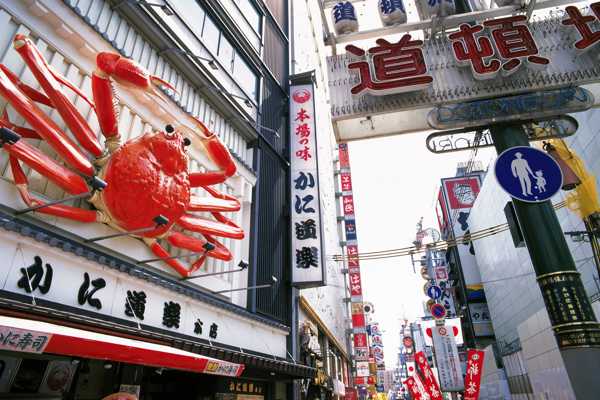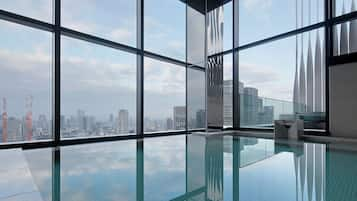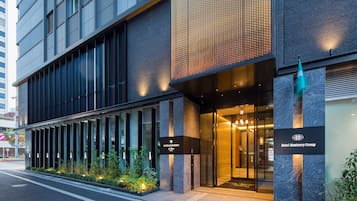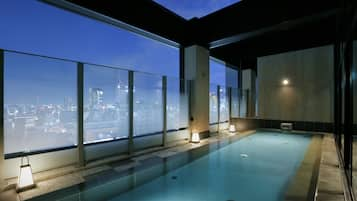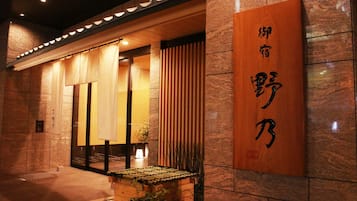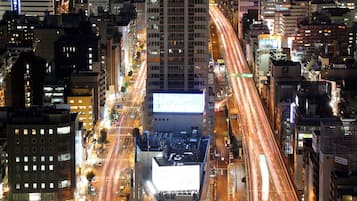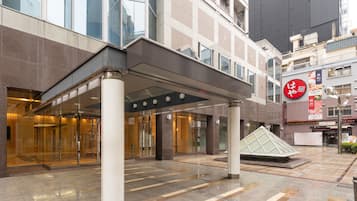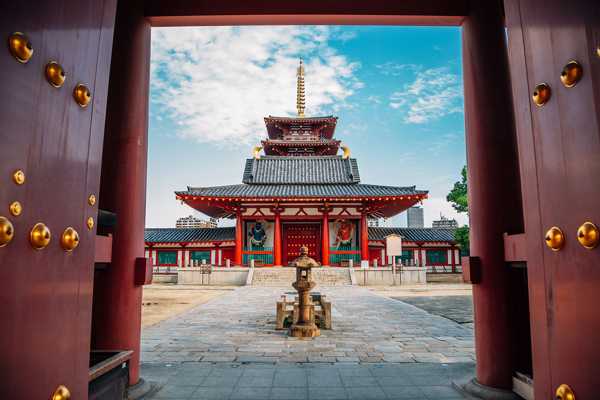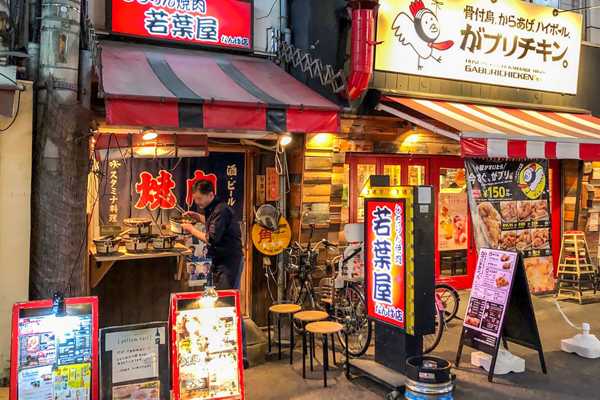Osaka, Japan's second largest city, is the main hub of the Kansai region and there are plenty of places to visit in the suburbs. Kansai features UNESCO World Heritage Sites and holy cities in the mountains, so why not take a day trip or a few nights to visit some of the charming places just outside the Osaka metropolis?
- 1
Himeji Castle (Hyogo Prefecture)
A beautiful castle tower that has retained its original appearance

- Lịch sử
- Ảnh
Himeji Castle is also called Shirasagi-jo (“White Egret Castle”) for its graceful appearance that looks like an egret with its wings spread. It’s one of the 5 National Treasures of Japan and was designated as Japan's first World Heritage Site in 1993.
The present-day main tower of Himeji Castle was constructed in 1609. Unique features of the castle include the pure white walls made of all-white stucco and the connected castle tower, which consists of the main tower and 3 smaller towers connected by a wariyagura (roofed passage). Legend has it that a monster called Osakabehime (Princess Osakabe) dwells in the castle tower. The free Himeji Castle Daihakkenn (Great Discovery of Himeji Castle) app will make a great companion during your visit. It enables you to check detailed explanations on the spot on your smartphone.
Địa điểm: 68 Honmachi, Himeji City, Hyogo Prefecture 670-0012, Japan
Giờ mở cửa: Open daily from 9 am to 5 pm (until 6 pm in the summer, from 27th April to 31st August)
Điện thoại: +81 (0)792851146
Bản đồ - 2
Nara Park (Nara Prefecture)
Nara's peaceful park surrounded by temples and shrines where deer roam

- Gia đình
- Lịch sử
- Ảnh
Spanning an area of 660 hectares, Nara Park includes Todaiji Temple, Kofukuji Temple, and Kasuga Taisha Shrine, all of which were founded as places of worship dating back to the time when Nara was the capital of Japan about 1,300 years ago.
Its parkland sprawls across nature zones such as Mt. Wakakusa and the Kasuga primeval forest. Approximately 1,300 deer, believed to be the messengers of the Kasuga Taisha shrine, roam freely in the park. Visitors should note that although the deer are adorable creatures that will eat snacks from visitors’ hands, they’re actually wild animals and should be treated with caution. The park also has cultural facilities such as the Nara National Museum.
Địa điểm: 543 Shibatsujicho, Nara City, Nara Prefecture 630-8114, Japan
Giờ mở cửa: The park is open 24 hours a day, while opening hours for temples and shrines vary
Điện thoại: +81 (0)742-22-0375
Bản đồ - 3
Kiyomizu-dera Temple, Mt. Otowayama (Kyoto Prefecture)
View Kyoto from the stage of Kiyomizu-dera at the foot of Mt. Higashiyama

- Lịch sử
- Ảnh
Kiyomizu-dera Temple on Mt. Otowayama is a temple with a proud history and a vast site at the foot of Mt. Higashiyama in Kyoto. The main hall of the temple is well known for the expression, “Jump off the stage of Kiyomizu.”
It was founded in 798 and is an ancient temple. The main hall and the precincts are designated at National Treasures. The temple grounds are lined with nearly 30 temple halls and pagodas, including some important cultural properties. The main temple hall features a standing image of the Thousand-Armed Avalokitesvara Bodhisattva, a hidden Buddha which is only shown to the public once every 33 years. The temple's name is derived from the pure water that flows from Otowa no Taki (Otowa Falls), which is said to bring blessings for good health, long life, academic achievement, and a happy marriage. Its seasonal beauty is also exceptional, with cherry blossoms in spring, greenery in summer, and golden leaves in autumn.
Địa điểm: 1-294 Kiyomizu, Higashiyama-ku, Kyoto City, Kyoto Prefecture 605-0862, Japan
Giờ mở cửa: Open daily from 6 am to 6 pm (depending on the season, special visits, etc.)
Điện thoại: +81 (0)755511234
Bản đồ - 4
Minoh (Osaka)
Admire the beauty of nature one of the 100 best waterfalls in Japan

- Mạo hiểm
- Lịch sử
- Ảnh
Minoh (also spelled Minoo) is located in the northern part of Osaka Prefecture. While Minoh is now a commuter town of Osaka, it has long been home to Shugendo ("mountain asceticism") monasteries and is famous for its abundance of tourist attractions, such as Ryuanji Temple and Minoh Great Waterfalls, as well as its stunning autumn colours.
Standing 355 metres above sea level, the suburbs of Mt. Minoh are designated as the Meiji no Mori Minoh National Park. From Hankyu Minoh Station to the Great Waterfalls, a paved waterfall path stretches about 2.7 kilometres and isn’t too steep, so it’s ideal for a walk. Ryuanji Temple, along the way, is a prominent temple founded by En’no Gyoja (the founder of the Shugendo religion), and its principal image is said to be one of Japan's four Benzaiten (guardian deities of the gods).
Địa điểm: Minookoen, Minoo City, Osaka Prefecture 562-0002, Japan
Giờ mở cửa: Takiyasu Temple: Open daily from 9 am to 5 pm
Điện thoại: +81 (0)72-723-1885
Bản đồ - 5
Kobe Port (Kobe City)
Explore this exotic port town

- Cặp đôi
- Gia đình
- Ảnh
Kobe Port has prospered for centuries as a good natural harbour. With its exotic atmosphere and beautiful night landscape, it’s also a popular tourist destination.
Meriken Park and Harborland are the main sights. Other iconic spots include Kobe Port Tower, the landmark of Kobe, Kobe Maritime Museum, and BE KOBE Monument. You can enjoy blue sky and sea views from the Port Tower during the daytime and a sparkling cityscape at night. Take a cruise on a boat and admire the view of the port city from the sea, with Mt. Rokko in the background. Hungry visitors can head to Nankinmachi (Chinatown) for some top food and a stroll.
Địa điểm: Hatobacho, Chuo-ku, Kobe City, Hyogo Prefecture 650-0042, Japan
Giờ mở cửa: Opening times vary depending on the facility
Điện thoại: +81 (0)78-327-8981
Bản đồ - 6
Tenkawa (Nara Prefecture)
Visit shrines, temples and famous waters in a mysterious mountain village

- Mạo hiểm
- Gia đình
- Lịch sử
- Ảnh
In the centre of the Kii Peninsula, in the southern part of Nara Prefecture, lies the village of Tenkawa. ”Land of Heaven, Land of Trees, Land of Rivers" is the catchphrase of the village.
One of the Sacred Sites and Pilgrimage Routes in the Kii Mountain Range, registered as a UNESCO World Heritage Site, the village is home to Mt. Omine, the birthplace of Shugendo, a mountain-based form of asceticism founded by En no Gyoja some 1,300 years ago, and still frequented by many ascetic practitioners. The village is also home to the Tenkawa Great Benzaiten Shrine, dedicated to the goddess Benzaiten, the spirit of water, who is said to have given the village its name. A number of hiking trails lead visitors to Dorogawa Spring, one of the Selected 100 Exquisite and Well-Conserved Waters, where they can quench their thirst.
Địa điểm: 263-1 Kawai, Tenkawa-mura, Yoshino District, Nara Prefecture 638-0301, Japan
Giờ mở cửa: Opening times vary depending on the facility
Điện thoại: +81 (0)747-63-0999
Bản đồ - 7
Nishikinohama Park (Osaka)
Central Osaka's closest beach, with a kilometre-long stretch of white sand

- Mạo hiểm
- Cặp đôi
- Gia đình
- Ảnh
Nishikinohama Park is located in Kaizuka City, Osaka Prefecture. The park is said to have been named Nishiki no Hama (literally, "beach of two colours") because of the stunning contrast in colour between the white sands and the green pine trees.
The park is 41.1 hectares in size. In fact, it’s the largest swimming beach in Osaka Prefecture. Visitors can enjoy clamming in the spring, and there’s even an area dedicated to canoeing and stand-up paddleboarding. The shoreline pine forest has been designated as one of the Top One Hundred Greenery Scenes of Osaka. Featuring a monument of a sailing ship's mast, the park also has a large climbing frame and other recreational facilities providing a whole day of fun for children and adults alike.
Địa điểm: 859-1 Sawa, Kaizuka City, Osaka Prefecture 597-0062, Japan
Giờ mở cửa: The park is open 24 hours a day
Điện thoại: +81 (0)72-422-0442
Bản đồẢnh của Nishikinoakira (CC BY-SA 4.0) đã điều chỉnh
- 8
Kurashiki (Okayama Prefecture)
A romantic city with beautifully preserved buildings from each era

- Cặp đôi
- Gia đình
- Lịch sử
- Ảnh
Located in the southern part of Okayama Prefecture, Kurashiki with its white-walled townscape is a famous tourist destination.
In the Edo period, the city was under the direct control of the government of the Tokugawa Shogunate and prospered as a commercial centre. Even today, echoes of those days are beautifully preserved all along the canal. Facing the Seto Inland Sea, Kurashiki commands a panoramic view of the Seto Long-Bridge connecting the islands from Mount Washu. The townscape that continues from Shimotsui Port, with its plaster walls and mushikago mado (window with an ultra-fine lattice), is a preservation district designated by Okayama Prefecture. Other highlights include Kurashiki Ivy Square, a redeveloped former site of Kurashiki Boseki, which contributed to Kurashiki's modernization, and the Ohara Museum of Art, Japan's first private museum of modern art.
Địa điểm: City Plaza West Building 1F, 1-7-2 Achi, Kurashiki City, Okayama Prefecture 710-0055, Japan
Giờ mở cửa: Opening times vary depending on the facility
Điện thoại: +81 (0)86-424-1220
Bản đồ - 9
Koyasan (Wakayama Prefecture)
A historical religious city in a basin between mountains

- Lịch sử
- Ảnh
Koyasan (Mt. Koya) is in the northern part of Wakayama Prefecture. This religious city is built around Kongobuji Temple, founded in 816 by Kukai, the founder of the Shingon sect of Buddhism, in a mountain basin at about 800 metres above sea level.
Koyasan is described as a “one-mountain precinct”, meaning that the entire area of Koyasan, including the town itself, is within the precincts of the temple. Obviously this is quite unique. Starting with Kongobuji Temple, the head temple, more than 100 temples are located within the mountain, with about half of them serving as shukubo (lodging houses), allowing visitors to experience a temple stay. In 2004, the area was registered as a UNESCO World Heritage Site as "Sacred Sites and Pilgrimage Routes in the Kii Mountain Range”.
Địa điểm: Koyasan, Koya-cho, Ito District, Wakayama Prefecture 648-0211, Japan
Giờ mở cửa: Kongobuji Temple: Open daily from 8.30 am to 5 pm (opening hours at other temples vary)
Điện thoại: +81 (0)736-56-2468
Bản đồ - 10
Totsukawa (Nara Prefecture)
An unexplored village of nature and history in the Kii Peninsula mountains

- Lịch sử
- Ảnh
Totsukawa is located at the southernmost tip of Nara Prefecture. It covers an area larger than the entire 23 wards of Tokyo.
The Kumano Kodo pilgrimage route, a World Heritage Site leading to Kumano Hongu Shrine, runs through the village, and visitors can enjoy several walking trails ranging from a fully-fledged 4-day/3-night course to a day-walk. Along the way, you’ll find a hot spring resort called Totsukawa Onsen-kyo, where you can kick back and relax in hot spring water from the wellspring at any of the facilities. Beautiful natural scenery, grand canyons, waterfalls, historic shrines and temples, a human-powered ropeway called the “Yaen”, and Japan's longest bus route (from Nara to Wakayama) are just a few of the many fascinating things to be found here.
Địa điểm: 373-1 Ohara, Totsukawa, Yoshino District, Nara Prefecture 637-1333, Japan
Giờ mở cửa: Opening times vary depending on the facility
Điện thoại: +81 (0)746-63-0200
Bản đồ



